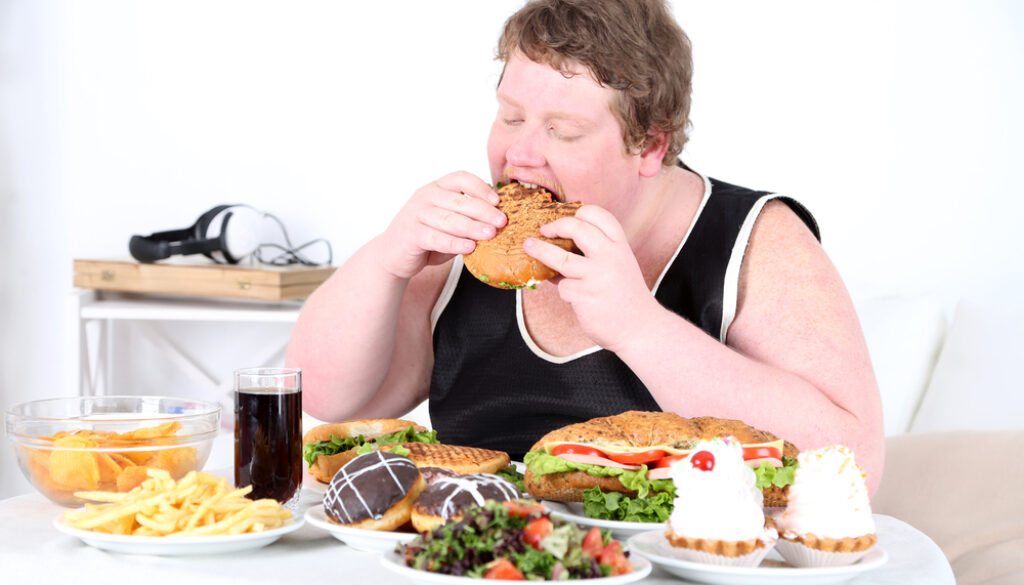Binge Eating Treatment
It’s not what your eating, but what’s eating at you!
It’s late and everyone has gone to bed. You have a moment to breathe. Ahhhh!!!!!! You made it, the day is finally over. A voice in your head starts to talk and you don’t know what to do. You’ve been running all day and now this, you start craving something but you don’t know what it is. You have the answer let me find out what it wants. You weren’t even hunger. As a matter of fact you just ate dinner 2 hours ago. Is it boredom, loneliness, frustration, overwhelm? It doesn’t really matter you just know you have a void and you need to fill it somehow so food sounds like the logical choice. You make your way back to the kitchen and start opening the cabinets, one at a time you peruse what’s there to find what you’re hungry for. Nothing is really calling your name so you venture to the refrigerator and open that too. Still nothing specific. Then it happens, you start to eat. It begins with something small and then it snowballs into an outright binge. Before you know it you can’t stop. You have consumed thousands of calories and now the cycle begins. You start to get angry at yourself for going there again and then you tell yourself “I’ve failed”, “I’m useless”, “I’m fat might as well eat everything in site.” It gets worse and the binge begins to grow. Then you start feeling the guilt, shame, self-loathing as you have let it get out of your control. You swear to yourself it will never happen again. At least not until the next time that it does.
Binge eating plagues more people than you might imagine. It is very similar to Bulimia in the way that the thousands upon thousands of people who are suffering from a binge eating disorder tend to over eat due to an emotional trigger and over time the behavior is set in stone if not treated. The only real difference between Bulimia and a binge eating disorder is that Bulimia often involves purging the food you take in through various methods, natural and medicinally induced and can be a combination of eating disorders. Most Binge and other emotional eaters are ashamed of their disorder and usually do their best to hide their habits and eat behind closed doors.
Binge eating isn’t something that just goes away without effort and like Bulimia it is triggered psychologically which is why it is important to treat the thought process first. Individuals that have tried to fight through their disorder alone might be able to stop the behavior by themselves without addressing the deeper issues, but in the majority of cases when things get stressful or something sets of an emotional trigger, they’ll spiral right back into their destructive emotional eating patterns.
Binge eating can lead to an extensive variety of emotional, social and physical problems, often suffering from health issues, insomnia, and even suicidal thoughts, more so than people that don’t have an eating disorder. Anxiety, depression and substance abuse are also frequent side effects as well as weight gain. There are so many hard to handle factors that come into play that it’s virtually impossible to fight alone.
Binge eating disorder: Here are some of the common warning signs that suggest a person may be suffering from binge eating disorder:
- Eats large amounts of food when not physically hungry.
- Eats much more rapidly than normal.
- Eats until the point of feeling uncomfortably full.
- Often eats alone because of shame or embarrassment.
- Has feelings of depression, disgust, or guilt after eating.
- Has a history of marked weight fluctuations.
Binge eating treatment requires a strong commitment by the person who is suffering from the disorder which can be caused by a number of traumatic life experiences. Sexual abuse, extreme self-esteem issues, peer pressure and more can lead to this debilitating behavior at virtually any age, brought on by the need to escape and find at least some temporary relief from the personal pain that is driving the disorder. Luckily, there are various treatments to help work through these issues and find new ways to cope with the urges to binge eat.
Behavior therapy can help you find what triggers these overeating sessions. You’ll often have to keep a log or diary that illustrates why you feel like binge eating at certain times and what made you react that way and turn to food for comfort. It’ll detail what you ate and how it made you feel afterwards. By knowing what causes your negative reaction, you can start to prepare for a new coping device. This means avoiding those triggers and knowing what to do when one goes off.
There are many treatments for binge eating and all of them address the deeper psychological issues that it is connected to. You have to understand there are other ways to cope and replace the negative attraction to food with positive coping mechanisms. There’s no reason to struggle with an emotional eating disorder like binge eating and contacting a FINE to FAB consultant for treatment will lead to eventual recovery if you commit yourself to change.
If you need to get a handle on your fear of being not good enough, please reach out. We can help you can get on with your life.



